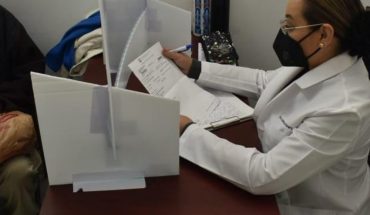
A few days ago, THE JPMorgan Investment Bank estimated that unemployment in Chile was already bordering 20% of coronavirus. This, despite the effort to generate policies that allow jobs to be maintained. Unfortunately, this impact would also be reaching people with disabilities who have been hired under the wing of the Employment Inclusion Act 21,015.
According to an article by Rafael Mies of the University of Los Andes, since the end of last year and what is going on in 2020, the Directorate of Labor has shown a decrease in compliance with the Law. “Not only have hiring declined sharply (there have only been 300 between January and April), but out of a total of 25,607 registered employment contracts since the act came into force, 5,509 have already been dismissed, representing more than a 21% drop in this mass of workers.”
The academic, as I mentioned on more than one occasion, highlights how well inclusion does to organizations, improving internal engagement and strengthening teams. So what would be the reasons for employers to decide to disassociate a worker with a disability? Is it enough just to promote law enforcement? o Do we have to stop and wonder under what conditions the standard is being implemented?
It is true that coronavirus has strongly affected the working, economic and social sphere of families. However, our experience at Fundación Tacal in respect of people with disabilities who were trained and hired has been different; of the 108 people included in 2019, only six have been decoued from the effects of the Pandemic by Covid-19.
This has been a successful job and the reasons for achieving it are also true; including persons with disabilities according to their competencies and accompanying companies and workers in the process is key. Therefore, looking at the labour management figures makes it clear to me that the reasons for the decrease in recruitment and the increase of disengagements seem to be due rather to a deficit in the management of the inclusion process.
Is 1% inclusion of the law in check? I don’t think so. Workers with disabilities will be affected by the pandemic, but I think there are other important factors that also need to be considered: the lack of preparation of the company to achieve the cultural change so necessary for a person with a disability to be properly included; recruitment by skills 100, not by charity or by meeting a quota, is also important.
Living the process of inclusion, as part of the organizational work of companies and internal communication with their workers can make a difference. That way we’ll avoid charity, hire for competitions. This is the only way to strengthen inclusion. Either way, we’ll just be entrenching prejudice. Finally, in the face of a pandemic like the one we are experiencing, we will prevent them from being the first to be disengaged.
Let’s work together to change this reality!
The content poured into this opinion column is the sole responsibility of its author, and does not necessarily reflect the editorial line or position of El Mostrador.





